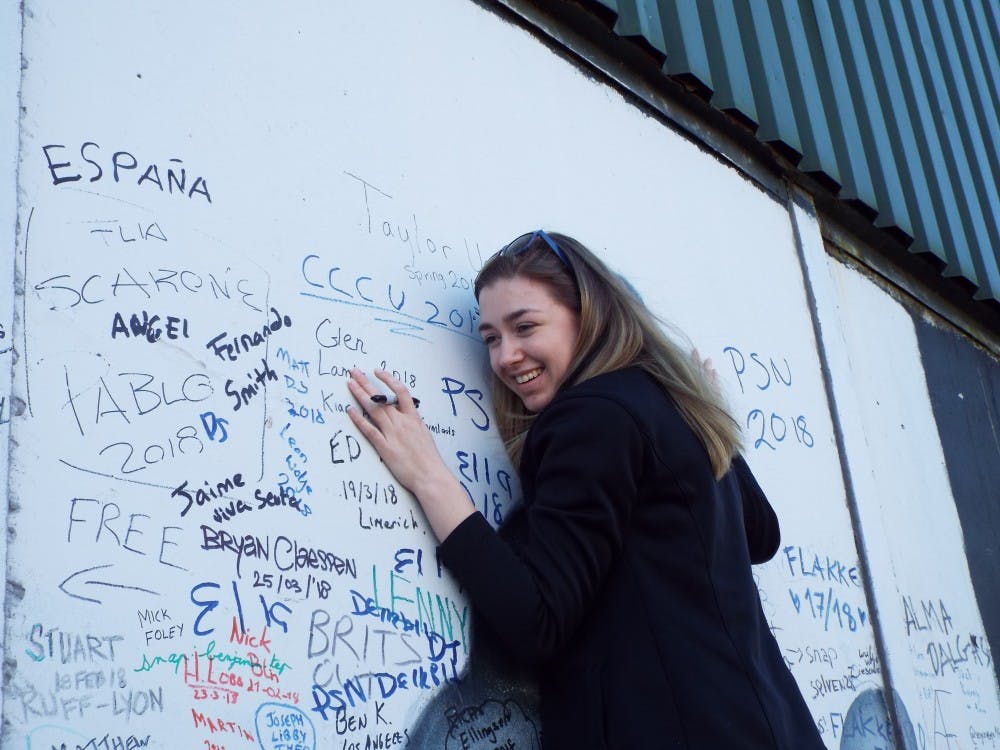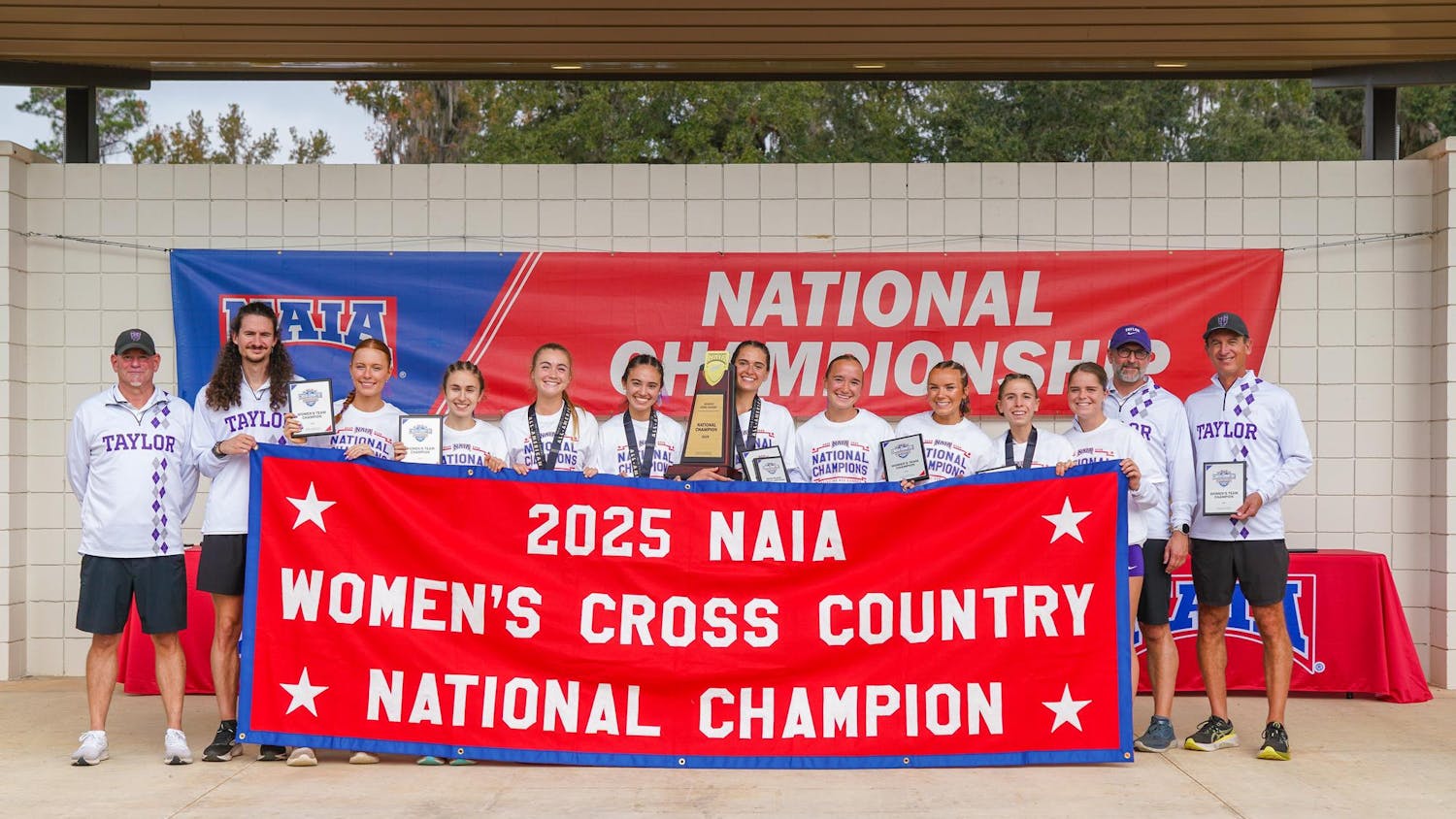Rayce Patterson | Echo
Barbara McDade visited Taylor University on Thursday, Sept. 6 to talk to students about peacebuilding and reconciliation in Northern Ireland.
McDade, senior lecturer of Educational Studies at Stranmillis University College in Belfast, is the professor for the Irish Studies Program's (ISP) newest class, peacebuilding and reconciliation in an irish context. The course became available to ISP students starting the spring semester of 2018.
"I think there's value in studying all the things that we study," Director of Honors Programming Jennifer Moeschberger said. "I was happy to be able to add the peacebuilding class. I just think there's a lot to be learned. A deep dive into Northern Ireland has a lot of translatable knowledge in how we think about conflict worldwide."
Moeschberger believes learning about Northern Ireland helps students understand what makes up their cultural identity and how they can relate to people who are different from themselves.
A visit to Belfast during the peacebuilding and reconciliation course exposes students to a lot of the remaining hurt from the Troubles, a period of about 30 years of violent, sectarian conflict in which 3,635 people were killed in Northern Ireland. The ISP students view faded murals of people wearing balaclavas shooting guns in the air, stand in the shadow of the famous Peace Wall and hear the stories of people who lost friends and family during the Troubles.
However, there are many signs of progress and healing in Northern Ireland.
"We have a story of hope to tell in Northern Ireland, that the impossible is possible," McDade said. "Look for the signs of hope. Look for the glimpses of grace in this incredible, crazy, mixed-up, little community."
The Troubles finally came to an end with the signing of the Good Friday/Belfast Agreement in 1998, and Northern Ireland has been on the road to peace and recovery ever since.
The peacebuilding and reconciliation course also allows ISP students to interact with peacemakers in Northern Ireland face-to-face. Students get to meet with prominent church figures, such as Reverend Steve Stockman and Father Martin McGill, who are good friends across the sectarian divide and continue to steward the relationship between Fitzroy Presbyterian Church and Clonard Monastery. Students in the spring semester got to attend the 4 Corners Festival, which allows the four different corners of Belfast to talk with one another and gives victims from both sides of the conflict the ability to tell their stories.
Senior Steven Vermillion, who was a part of the ISP program in the Spring of 2018, had prior knowledge of the troubles, but was still surprised by both the progress of peace and the tension that still existed.
"I was pleasantly surprised to see how much peace had been achieved, based on how much mayhem and conflict I knew had taken place," Vermillion said. "(But) as much as I was surprised by how much peace and how much hope I had in that (the peace) . . . it was still curbed by the look I got of the tension that is still there. It's just not exploding violently, but it's there."
The question remains: what is the point of a course on peacebuilding and reconciliation?
Moeschberger believes there is value in studying one context in which peacebuilding is being achieved. Then the students can take a look at their own context through the lens of the conflict in Northern Ireland, and what can be learned about their own identity and how they relate to differences in their lives.
"One of the things (that stuck with me) is the imperative we have to build peace and how integral that is to faith in Christ, and to what extent it is necessary," Vermillion said. "It gives you a framework for living in your own context as a peacebuilder."





